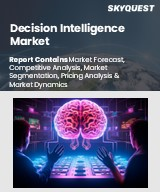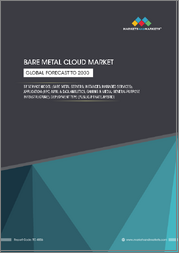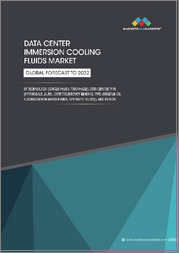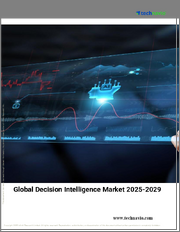
|
시장보고서
상품코드
1859828
스마트 앱 및 머신 고객 시장 예측(-2032년) : 컴포넌트별, 프로바이더 유형별, 배포 방식별, 용도별, 최종사용자별, 지역별 분석Smart Apps & Machine Customers Market Forecasts to 2032 - Global Analysis By Component (Hardware, Software and Services), Provider Type, Deployment Mode, Application, End User and By Geography |
||||||
Stratistics MRC에 따르면 세계의 스마트 앱·머신 고객 시장은 2025년에 571억 달러를 차지하며 예측 기간 중 CAGR은 27.4%로 성장하며, 2032년에는 3,109억 달러에 달할 것으로 예측됩니다.
스마트 앱은 인공지능(AI), 머신러닝, 데이터 분석 등 첨단 기술을 활용하여 개인화되고, 자동화되고, 맥락에 맞는 사용자 경험을 제공하는 지능형 소프트웨어 용도입니다. 기존 앱과 달리 사용자의 행동에 적응하고, 니즈를 예측하고, 사전 예방적 솔루션을 제공함으로써 효율성과 의사결정을 향상시킵니다. 머신 커스터머는 인간이 직접 관여하지 않고 인간을 대신해 대화하고, 의사결정하고, 거래하는 자동화된 에이전트나 시스템을 말합니다. 이러한 디지털 엔티티는 API, 스마트 계약, AI 알고리즘을 사용하여 자율적으로 제품을 구매하고, 서비스를 관리하고, 다른 기계 및 서비스와 통신합니다. 이들은 함께 자동화와 디지털 인터랙션의 새로운 시대를 주도할 것입니다.
AI와 머신러닝의 통합
AI와 머신러닝의 통합은 스마트 앱-머신 고객 시장을 촉진하는 주요 촉진요인입니다. 이러한 기술을 통해 앱과 디지털 에이전트가 사용자의 행동으로부터 학습하고 실시간으로 적응하며 예측 가능하고 개인화된 경험을 제공할 수 있습니다. 지능형 추천부터 자율적인 의사결정까지 AI를 활용한 시스템은 업무 효율성과 고객 참여를 강화합니다. 기업이 AI를 활용한 솔루션을 채택함에 따라 스마트 앱과 기계 고객에 대한 수요가 산업 전반에 걸쳐 급증하면서 시장 성장에 박차를 가할 것으로 예측됩니다.
데이터 프라이버시 및 보안에 대한 우려
빠른 성장에도 불구하고 데이터 프라이버시 및 보안에 대한 우려는 여전히 시장의 큰 억제요인으로 작용하고 있습니다. 이러한 지능형 시스템은 효과적으로 작동하기 위해 사용자 데이터에 크게 의존하고 있으며, 이는 데이터 악용, 침해, 규제 준수 문제를 야기하고 있습니다. 정부와 소비자의 감시가 점점 더 엄격해지는 가운데, 기업은 강력한 사이버 보안 프레임워크와 투명한 데이터 관행에 투자해야 합니다. 이러한 우려를 해결하지 못하면 채택이 저해되고 신뢰가 손상되어 시장 확대가 둔화될 수 있습니다.
자동화 수요 증가
각 분야의 자동화 수요 증가는 스마트 앱-머신 고객 시장에 큰 비즈니스 기회가 될 것입니다. 기업은 업무를 간소화하고, 비용을 절감하고, 고객 경험을 개선하기 위해 확장 가능하고 지능적인 솔루션을 찾고 있습니다. 스마트 앱과 머신 커스터머는 자율적인 의사결정, 실시간 분석, 디지털 생태계와의 원활한 통합을 제공합니다. 각 산업계가 디지털 전환을 수용함에 따라 자동 에이전트 및 지능형 용도에 대한 의욕이 높아져 새로운 수입원을 확보하고 혁신을 가속화할 수 있을 것으로 기대됩니다.
높은 도입 비용
높은 도입 비용은 시장 성장에 큰 위협이 될 수 있습니다. 스마트 앱이나 머신 커스터머를 도입하기 위해서는 인프라, 숙련된 인력, 기존 시스템과의 통합에 많은 투자가 필요한 경우가 많습니다. 중소기업에서는 이러한 첨단 기술을 도입할 여력이 없어 보급에 한계가 있을 수 있습니다. 또한 지속적인 유지보수 및 업데이트는 경제적 부담을 증가시킵니다. 비용 효율적인 솔루션과 확장 가능한 모델이 없다면, 시장은 다양한 산업에서 잠재력을 최대한 발휘하는 데 있으며, 장벽에 직면할 수 있습니다.
COVID-19의 영향
COVID-19 팬데믹은 스마트 앱-머신 고객 시장의 파괴자이자 동시에 촉매제 역할을 했습니다. 초기 봉쇄로 인해 도입이 지연되고 예산이 부족해졌지만, 위기는 디지털 도입과 자동화를 가속화했습니다. 기업은 연속성을 유지하고, 원격 업무를 관리하고, 고객 참여를 강화하기 위해 스마트 앱과 머신 고객으로 눈을 돌렸습니다. 팬데믹은 지능형 자율 시스템의 가치를 부각시키고, 장기적인 투자를 촉진하며, 모든 분야의 디지털 전략을 재구축하는 계기가 되었습니다.
예측 기간 중 디지털 트윈 부문이 가장 큰 비중을 차지할 것으로 예측됩니다.
디지털 트윈 부문은 업무 효율성과 예측 분석에 혁신을 가져다주면서 예측 기간 중 가장 큰 시장 점유율을 차지할 것으로 예측됩니다. 디지털 트윈은 물리적 시스템의 가상 복제본을 생성하여 실시간 모니터링, 시뮬레이션, 최적화를 가능하게 합니다. 제조, 의료, 물류 등의 산업에서 다운타임 감소, 성능 향상, 의사결정 강화를 위해 이 기술을 활용하고 있습니다. 디지털 인프라가 성숙해짐에 따라 디지털 트윈의 채택은 계속 확대될 것이며, 가장 큰 부문으로서의 지위를 확보할 것으로 보입니다.
예측 기간 중 가상 비서 분야는 가장 높은 CAGR을 나타낼 것으로 예측됩니다.
예측 기간 중 가상 비서 분야는 고객 서비스, 생산성 및 개인 지원 분야에서 역할이 확대됨에 따라 가장 높은 성장률을 나타낼 것으로 예측됩니다. 이러한 AI 기반 에이전트는 대화형 인터페이스를 제공하고, 일상적인 작업을 자동화하며, 플랫폼 간 즉각적인 지원을 제공합니다. 자연 언어 처리와 음성 인식의 발전으로 가상 비서가 더욱 직관적이고 유능해지고 있습니다. 스마트폰, 스마트홈, 기업용 솔루션의 보급이 이 분야의 급격한 성장과 기술 혁신에 박차를 가하고 있습니다.
가장 큰 점유율을 차지하는 지역
예측 기간 중 아시아태평양은 탄탄한 디지털 인프라, 기술에 정통한 인구 증가, AI 기반 솔루션의 적극적인 채택으로 인해 가장 큰 시장 점유율을 차지할 것으로 예측됩니다. 중국, 인도, 일본과 같은 국가들은 소매, 의료, 제조 등 다양한 분야에서 스마트 기술에 많은 투자를 하고 있습니다. 디지털 혁신과 자동화를 지원하는 정부의 구상은 이 지역의 우위를 더욱 강화하고 있습니다. 주요 하이테크 기업과 스타트업의 존재도 아시아태평양이 이 진화하는 시장에서 주도권을 쥐고 있는 요인 중 하나입니다.
CAGR이 가장 높은 지역:
예측 기간 중 북미는 강력한 기술 혁신, AI의 조기 도입, 성숙한 디지털 생태계로 인해 가장 높은 CAGR을 보일 것으로 예측됩니다. 이 지역은 자동화, 데이터베이스 의사결정, 고객 중심 솔루션에 중점을 두고 있으며, 스마트 앱과 기계 고객 수요를 촉진하고 있습니다. 금융, 의료, 소매 등 주요 산업에서 지능형 시스템 통합이 빠르게 진행되고 있습니다. 지원적인 규제 프레임워크와 활발한 스타트업 문화는 성장을 더욱 가속화하여 북미를 고성장 지역으로 자리매김하고 있습니다.
무료 커스터마이징 서비스
이 보고서를 구독하는 고객은 다음과 같은 무료 맞춤화 옵션 중 하나를 이용할 수 있습니다.
- 기업 소개
- 추가 기업 종합 프로파일링(최대 3사)
- 주요 기업의 SWOT 분석(최대 3사)
- 지역 구분
- 고객의 관심에 따른 주요 국가별 시장 추정, 예측, CAGR(주: 타당성 확인에 따라 다름)
- 경쟁사 벤치마킹
- 제품 포트폴리오, 지역적 입지, 전략적 제휴를 기반으로 한 주요 기업 벤치마킹
목차
제1장 개요
제2장 서론
- 개요
- 이해관계자
- 분석 범위
- 분석 방법
- 데이터 마이닝
- 데이터 분석
- 데이터 검증
- 분석 어프로치
- 분석 자료
- 1차 조사 자료
- 2차 조사 자료
- 전제조건
제3장 시장 동향 분석
- 촉진요인
- 억제요인
- 시장 기회
- 위협
- 용도 분석
- 최종사용자 분석
- 신흥 시장
- 신형 코로나바이러스(COVID-19)의 영향
제4장 Porters Five Force 분석
- 공급업체의 교섭력
- 바이어의 교섭력
- 대체 제품의 위협
- 신규 참여 기업의 위협
- 기업간 경쟁
제5장 세계의 스마트 앱·머신 고객 시장 : 컴포넌트별
- 하드웨어
- 센서
- 엣지 디바이스
- 임베디드 시스템
- 소프트웨어
- AI 알고리즘
- 분석 엔진
- 앱 프레임워크
- 서비스
- 매니지드 서비스
- 전문 서비스
제6장 세계의 스마트 앱·머신 고객 시장 : 프로바이더 유형별
- 인프라 프로바이더
- 앱 개발자
- 데이터 수집·준비
- AI 모델 개발자
제7장 세계의 스마트 앱·머신 고객 시장 : 배포 방식별
- 클라우드
- 하이브리드
- 온프레미스
제8장 세계의 스마트 앱·머신 고객 시장 : 용도별
- 소비자용 앱
- 기업용 앱
- 자율형 에이전트
- 디지털 트윈
- 가상 비서
- 예지보전 시스템
- 기타 용도
제9장 세계의 스마트 앱·머신 고객 시장 : 최종사용자별
- 의료·생명과학
- 제조업
- 소매업·eCommerce
- 항공우주·방위
- 자동차
- 통신
- 스마트 시티
- 기타 최종사용자
제10장 세계의 스마트 앱·머신 고객 시장 : 지역별
- 북미
- 미국
- 캐나다
- 멕시코
- 유럽
- 독일
- 영국
- 이탈리아
- 프랑스
- 스페인
- 기타 유럽
- 아시아태평양
- 일본
- 중국
- 인도
- 호주
- 뉴질랜드
- 한국
- 기타 아시아태평양
- 남미
- 아르헨티나
- 브라질
- 칠레
- 기타 남미
- 중동 및 아프리카
- 사우디아라비아
- 아랍에미리트
- 카타르
- 남아프리카공화국
- 기타 중동 및 아프리카
제11장 주요 동향
- 계약, 사업 제휴·협력, 합병사업
- 기업인수합병(M&A)
- 신제품 발매
- 사업 확장
- 기타 주요 전략
제12장 기업 개요
- Microsoft
- OpenAI
- IBM
- Nuance Communications
- Salesforce
- Infosys
- SAP
- Adobe
- Oracle
- ServiceNow
- Google(Alphabet Inc.)
- Huawei Technologies
- Amazon Web Services(AWS)
- Apple Inc.
- Baidu
According to Stratistics MRC, the Global Smart Apps & Machine Customers Market is accounted for $57.1 billion in 2025 and is expected to reach $310.9 billion by 2032 growing at a CAGR of 27.4% during the forecast period. Smart Apps are intelligent software applications that leverage advanced technologies like artificial intelligence (AI), machine learning, and data analytics to provide personalized, automated, and context-aware user experiences. Unlike traditional apps, they adapt to user behavior, predict needs, and offer proactive solutions, improving efficiency and decision-making. Machine Customers refer to automated agents or systems that interact, make decisions, and perform transactions on behalf of humans without direct human involvement. These digital entities use APIs, smart contracts, and AI algorithms to autonomously purchase products, manage services, or communicate with other machines or services. Together, they drive a new era of automation and digital interaction.
Market Dynamics:
Driver:
AI & Machine Learning Integration
The integration of AI and machine learning is a key driver propelling the Smart Apps & Machine Customers market. These technologies enable apps and digital agents to learn from user behavior, adapt in real-time, and deliver predictive, personalized experiences. From intelligent recommendations to autonomous decision-making, AI-powered systems enhance operational efficiency and customer engagement. As businesses increasingly adopt AI-driven solutions, the demand for smart applications and machine customers is expected to surge across industries, fueling market growth.
Restraint:
Data Privacy & Security Concerns
Despite rapid growth, data privacy and security concerns remain a significant restraint in the market. These intelligent systems rely heavily on user data to function effectively, raising issues around data misuse, breaches, and regulatory compliance. With increasing scrutiny from governments and consumers, companies must invest in robust cybersecurity frameworks and transparent data practices. Failure to address these concerns could hinder adoption and erode trust, slowing down the market's expansion.
Opportunity:
Rising Demand for Automation
The rising demand for automation across sectors presents a major opportunity for the Smart Apps & Machine Customers market. Businesses are seeking scalable, intelligent solutions to streamline operations, reduce costs, and enhance customer experiences. Smart apps and machine customers offer autonomous decision-making, real-time analytics, and seamless integration with digital ecosystems. As industries embrace digital transformation, the appetite for automated agents and intelligent applications will grow, unlocking new revenue streams and accelerating innovation.
Threat:
High Implementation Costs
High implementation costs pose a notable threat to market growth. Deploying smart apps and machine customers often requires significant investment in infrastructure, skilled personnel, and integration with existing systems. Small and medium enterprises may struggle to afford these advanced technologies, limiting widespread adoption. Additionally, ongoing maintenance and updates add to the financial burden. Without cost-effective solutions or scalable models, the market may face barriers in reaching its full potential across diverse industries.
Covid-19 Impact
The Covid-19 pandemic acted as both a disruptor and catalyst for the Smart Apps & Machine Customers market. While initial lockdowns delayed deployments and strained budgets, the crisis accelerated digital adoption and automation. Businesses turned to smart apps and machine customers to maintain continuity, manage remote operations, and enhance customer engagement. The pandemic underscored the value of intelligent, autonomous systems, driving long-term investment and reshaping digital strategies across sectors.
The digital twins' segment is expected to be the largest during the forecast period
The digital twins' segment is expected to account for the largest market share during the forecast period, due to its transformative impact on operational efficiency and predictive analytics. By creating virtual replicas of physical systems, digital twins enable real-time monitoring, simulation, and optimization. Industries such as manufacturing, healthcare, and logistics are leveraging this technology to reduce downtime, improve performance, and enhance decision-making. As digital infrastructure matures, the adoption of digital twins will continue to expand, securing its position as the largest segment.
The virtual assistants segment is expected to have the highest CAGR during the forecast period
Over the forecast period, the virtual assistants segment is predicted to witness the highest growth rate, due to their growing role in customer service, productivity, and personal assistance. These AI-powered agents offer conversational interfaces, automate routine tasks, and provide instant support across platforms. With advancements in natural language processing and voice recognition, virtual assistants are becoming more intuitive and capable. Their widespread use in smartphones, smart homes, and enterprise solutions is fueling rapid growth and innovation in this segment.
Region with largest share:
During the forecast period, the Asia Pacific region is expected to hold the largest market share due to its robust digital infrastructure, expanding tech-savvy population, and aggressive adoption of AI-driven solutions. Countries like China, India, and Japan are investing heavily in smart technologies across sectors such as retail, healthcare, and manufacturing. Government initiatives supporting digital transformation and automation further boost the region's dominance. The presence of major tech players and startups also contributes to Asia Pacific's leadership in this evolving market.
Region with highest CAGR:
Over the forecast period, the North America region is anticipated to exhibit the highest CAGR, owing to strong technological innovation, early adoption of AI, and a mature digital ecosystem. The region's emphasis on automation, data-driven decision-making, and customer-centric solutions drives demand for smart apps and machine customers. Key industries such as finance, healthcare, and retail are rapidly integrating intelligent systems. Supportive regulatory frameworks and a thriving startup culture further accelerate growth, positioning North America as a high-growth region in this market.
Key players in the market
Some of the key players profiled in the Smart Apps & Machine Customers Market include Microsoft, OpenAI, IBM, Nuance Communications, Salesforce, Infosys, SAP, Adobe, Oracle, ServiceNow, Google (Alphabet Inc.), Huawei Technologies, Amazon Web Services (AWS), Apple Inc. and Baidu.
Key Developments:
In September 2025, Microsoft Fabric Community Conference (FabCon), Microsoft unveiled major upgrades to its Fabric platform, including new Graph and Maps capabilities. These enhancements support deeper AI readiness and data contextualization, enabling organizations to build smarter agents and applications.
In September 2025, Workday announced a strategic collaboration with Microsoft to integrate AI agents built using Microsoft Azure AI Foundry and Copilot Studio into Workday's Agent System of Record (ASOR). This partnership aims to streamline enterprise AI management by verifying agent identity and ensuring secure, context-aware operations across business systems.
Components Covered:
- Hardware
- Software
- Services
Provider Types Covered:
- Infrastructure Providers
- App Developers
- Data Collection & Preparation
- AI Model Developers
Deployment Modes Covered:
- Cloud
- Hybrid
- On-Premises
Applications Covered:
- Consumer Apps
- Enterprise Apps
- Autonomous Agents
- Digital Twins
- Virtual Assistants
- Predictive Maintenance Systems
- Other Applications
End Users Covered:
- Healthcare & Life Sciences
- Manufacturing
- Retail & eCommerce
- Aerospace & Defense
- Automotive
- Telecom
- Smart Cities
- Other End Users
Regions Covered:
- North America
- US
- Canada
- Mexico
- Europe
- Germany
- UK
- Italy
- France
- Spain
- Rest of Europe
- Asia Pacific
- Japan
- China
- India
- Australia
- New Zealand
- South Korea
- Rest of Asia Pacific
- South America
- Argentina
- Brazil
- Chile
- Rest of South America
- Middle East & Africa
- Saudi Arabia
- UAE
- Qatar
- South Africa
- Rest of Middle East & Africa
What our report offers:
- Market share assessments for the regional and country-level segments
- Strategic recommendations for the new entrants
- Covers Market data for the years 2024, 2025, 2026, 2028, and 2032
- Market Trends (Drivers, Constraints, Opportunities, Threats, Challenges, Investment Opportunities, and recommendations)
- Strategic recommendations in key business segments based on the market estimations
- Competitive landscaping mapping the key common trends
- Company profiling with detailed strategies, financials, and recent developments
- Supply chain trends mapping the latest technological advancements
Free Customization Offerings:
All the customers of this report will be entitled to receive one of the following free customization options:
- Company Profiling
- Comprehensive profiling of additional market players (up to 3)
- SWOT Analysis of key players (up to 3)
- Regional Segmentation
- Market estimations, Forecasts and CAGR of any prominent country as per the client's interest (Note: Depends on feasibility check)
- Competitive Benchmarking
- Benchmarking of key players based on product portfolio, geographical presence, and strategic alliances
Table of Contents
1 Executive Summary
2 Preface
- 2.1 Abstract
- 2.2 Stake Holders
- 2.3 Research Scope
- 2.4 Research Methodology
- 2.4.1 Data Mining
- 2.4.2 Data Analysis
- 2.4.3 Data Validation
- 2.4.4 Research Approach
- 2.5 Research Sources
- 2.5.1 Primary Research Sources
- 2.5.2 Secondary Research Sources
- 2.5.3 Assumptions
3 Market Trend Analysis
- 3.1 Introduction
- 3.2 Drivers
- 3.3 Restraints
- 3.4 Opportunities
- 3.5 Threats
- 3.6 Application Analysis
- 3.7 End User Analysis
- 3.8 Emerging Markets
- 3.9 Impact of Covid-19
4 Porters Five Force Analysis
- 4.1 Bargaining power of suppliers
- 4.2 Bargaining power of buyers
- 4.3 Threat of substitutes
- 4.4 Threat of new entrants
- 4.5 Competitive rivalry
5 Global Smart Apps & Machine Customers Market, By Component
- 5.1 Introduction
- 5.2 Hardware
- 5.2.1 Sensors
- 5.2.2 Edge Devices
- 5.2.3 Embedded Systems
- 5.3 Software
- 5.3.1 AI Algorithms
- 5.3.2 Analytics Engines
- 5.3.3 App Frameworks
- 5.4 Services
- 5.4.1 Managed Services
- 5.4.2 Professional Services
6 Global Smart Apps & Machine Customers Market, By Provider Type
- 6.1 Introduction
- 6.2 Infrastructure Providers
- 6.3 App Developers
- 6.4 Data Collection & Preparation
- 6.5 AI Model Developers
7 Global Smart Apps & Machine Customers Market, By Deployment Mode
- 7.1 Introduction
- 7.2 Cloud
- 7.3 Hybrid
- 7.4 On-Premises
8 Global Smart Apps & Machine Customers Market, By Application
- 8.1 Introduction
- 8.2 Consumer Apps
- 8.3 Enterprise Apps
- 8.4 Autonomous Agents
- 8.5 Digital Twins
- 8.6 Virtual Assistants
- 8.7 Predictive Maintenance Systems
- 8.8 Other Applications
9 Global Smart Apps & Machine Customers Market, By End User
- 9.1 Introduction
- 9.2 Healthcare & Life Sciences
- 9.3 Manufacturing
- 9.4 Retail & eCommerce
- 9.5 Aerospace & Defense
- 9.6 Automotive
- 9.7 Telecom
- 9.8 Smart Cities
- 9.9 Other End Users
10 Global Smart Apps & Machine Customers Market, By Geography
- 10.1 Introduction
- 10.2 North America
- 10.2.1 US
- 10.2.2 Canada
- 10.2.3 Mexico
- 10.3 Europe
- 10.3.1 Germany
- 10.3.2 UK
- 10.3.3 Italy
- 10.3.4 France
- 10.3.5 Spain
- 10.3.6 Rest of Europe
- 10.4 Asia Pacific
- 10.4.1 Japan
- 10.4.2 China
- 10.4.3 India
- 10.4.4 Australia
- 10.4.5 New Zealand
- 10.4.6 South Korea
- 10.4.7 Rest of Asia Pacific
- 10.5 South America
- 10.5.1 Argentina
- 10.5.2 Brazil
- 10.5.3 Chile
- 10.5.4 Rest of South America
- 10.6 Middle East & Africa
- 10.6.1 Saudi Arabia
- 10.6.2 UAE
- 10.6.3 Qatar
- 10.6.4 South Africa
- 10.6.5 Rest of Middle East & Africa
11 Key Developments
- 11.1 Agreements, Partnerships, Collaborations and Joint Ventures
- 11.2 Acquisitions & Mergers
- 11.3 New Product Launch
- 11.4 Expansions
- 11.5 Other Key Strategies
12 Company Profiling
- 12.1 Microsoft
- 12.2 OpenAI
- 12.3 IBM
- 12.4 Nuance Communications
- 12.5 Salesforce
- 12.6 Infosys
- 12.7 SAP
- 12.8 Adobe
- 12.9 Oracle
- 12.10 ServiceNow
- 12.11 Google (Alphabet Inc.)
- 12.12 Huawei Technologies
- 12.13 Amazon Web Services (AWS)
- 12.14 Apple Inc.
- 12.15 Baidu



















